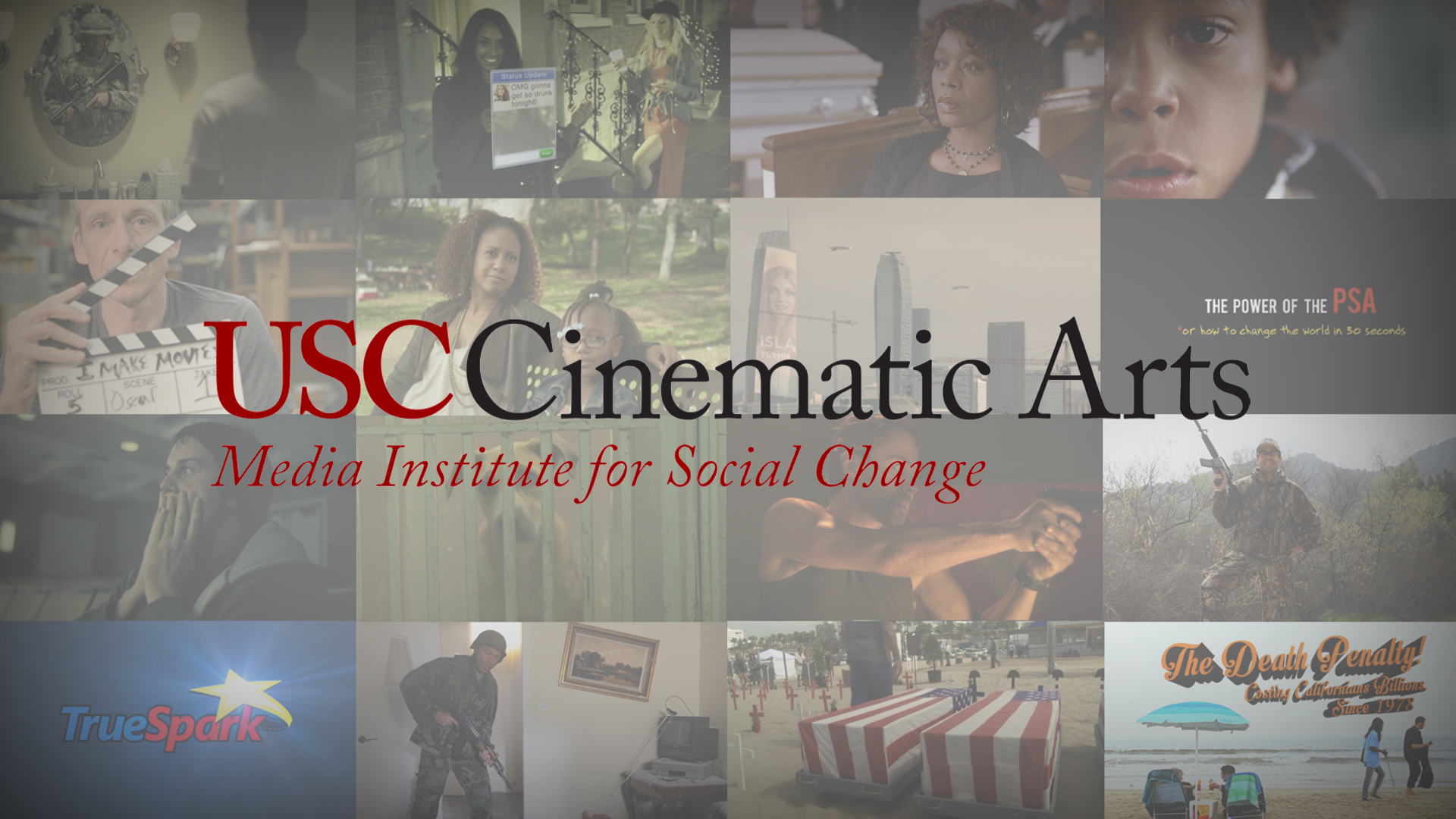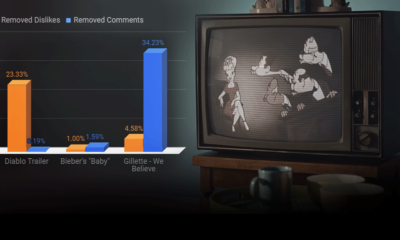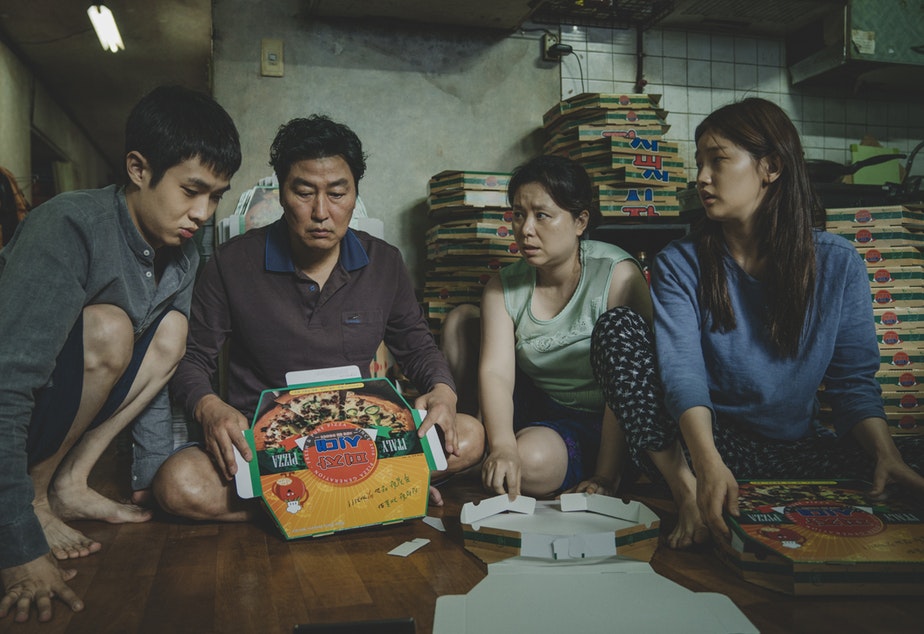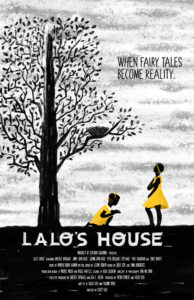Filmmakers
The Power of an Imaginary Cinema

It seems like today’s world cinema is separated into two categories: The one category is what we call ‘entertainment’ cinema – all those Blockbusters we watch with pleasure but without any other claim but to be entertained. The second category is the category of independent, experimental and documentary cinema: Inherent to all those films is an intellectual demand of the spectator; the audience wishes to find a truth in those films that tells them something new about our existing world.
Stunning about that (imaginary) division between the two categories is the place of fantasy films within them: When we think of ‘fantasy film’, mostly children’s movies made by Disney or Pixar pop in our heads. Without further thought it seems clear that the ‘fantasy’ genre certainly belongs to the category of the ‘entertainment’ cinema.
The power of imagination is one of the fundaments of filmmaking as such; a fundament that is essential for any narrative story. But when I look at the films of the last few years, it seems like only those fantastic stories that are directly related to a critical view of our ‘reality’, are claimed to be relevant for an ‘intellectual’ audience (and attributed to the ‘second’ category): Spike Jonze’s clearly stunning film Her is a fantastic, but sadly realistic future vision of the technical revolution; Jim Jarmusch’s Only Lovers Left Alive might tell a fantastic story, but is set in an overwhelmingly realistic and vast world. Both films try to make an argument about something that is directly related to what we call our ‘reality’. Not only those two examples, but the biggest part of critically acclaimed films is highly realistic or even tell historical or so called ‘true incident’ narratives.
The Fantasy films we know are ‘just for kids’; they merely entertain and obviously don’t effect anything in our ‘real’ world – do they?
“People like us [authors of fantastical literature] believe that a world, which is not habitable for children, won’t be habitable for adults as well in the end.”* (Michael Ende, ‘Zettelkasten’)
The German author Michael Ende (1929 – 1995), who wrote bestselling children’s novels such as ‘The Neverending Story’ explained some of his ideas and philosophical fundaments about fantasy and fiction in a published collection of letters and essays. This insight into the work of a fantasy author is really important for my own approach to a fantastical cinema.
Ende argues that fantasy authors like him are smiled at by other artists; their work doesn’t seem important or even necessary any more. He describes a certain movement in literature and art that seeks to be what Ende calls argumentative: Art is only regarded relevant, when it tries to make an argument about our world. What Ende criticizes about that development is that there isn’t any place anymore for fantastical and imaginary stories that don’t try to be argumentative. According to Ende, fantastic stories are essential not only for children, but for adults as well.
For me, Ende’s ideas about fantastical literature can be adopted to current cinema as well: There seems to be no place any more for fantasy in any other genre but the children’s film.
Yes, some might counter, it might be true: fantasy (films) are important for children and are certainly fun to watch for adults as well – but that does not mean they are more than entertainment, does it? A relevant Cinema, a Cinema that changes something, is a cinema that fights for the big ideas; a cinema that tells us important truths of our existing world and stands up for the ethics and morals of humanity, isn’t it?
And the only thing I can answer to those objections is: Exactly! – But still: not only. It is indeed fascinating how cinema can show us the world of others, and thereby bring us closer to the ones we never would have a chance to speak to. Cinema, like every other art, can indeed change something in the head of its spectator, it forces them to think – and this is one of the characteristics I love most about it. But there is something more; something that is often forgotten when talking about the power of cinema:
A realistic cinema, a documentary or socially critical narrative almost always tries to tell an existing truth. It is beyond the capacity of this article to discuss whether or not it might be possible to display something like an ‘objective’ truth – but I am sure that the attempt to do so is important enough: Yes, those films are necessary. Even, more: They are indispensable! Yes, Cinema can change something in trying (or attempting) to tell us truths we didn’t know about before. But there is more! The power of fantasy lies in a truth that is allowed to be subjective, a truth that has no limitations.
“If one wants to describe the truths that are within us, they need to use images that are different to the ones of our outside world.”*
What Ende tries to defend in his essays is simply the existence of a subjective and imaginary art, which does not try to use any arguments or intents as its fundament: The right of existence for a fantasy that does not need to be tied to reality at all. The power of this fantastic fiction lies in the fascination that it bears for all of us, children and adults. We all need fantastic stories, because they can tell us the subjective truths of who we all are. They bear a fascination and enthusiasm that can unify us all: “It is one thing to defend values, but it is something else to create or renew them. What can all those socially critical argumentations against the poisoning and destruction of the nature do, when the tree itself actually doesn’t mean something to us anymore?”*
But what could all that tell us about cinema?
For me, a cinema that changes something does not need to be ‘only’ a socially critical (Ende would call it argumentative) cinema. A cinema that changes something can also be a cinema that doesn’t start its creation with the idea of the change it tries to make. For me, a cinema of change should be allowed to be subjective and fantastical without any limits but the author’s imagination. The entitlement of art is art.
I believe that we as the audience should allow fantastical films to be aimed not only to children, but to adults as well. When we allow the two categories to cross over at some point, we may allow more films to emerge that don’t try to teach us something; but that we still can learn something from.
Then, we may discover that the subjective truth of a fantastic and imaginary world can sometimes be even realer than many attempts to display what we call the ‘objective’ truth of our reality: Cinema, like every other (narrative) art, sometimes needs to be untied from what we call the ‘real world’ to unfold its true power.
*All quotes translated into English by the author. Source: Ende, Michael: Zettelkasten. Skizzen & Notizen. Piper Verlag, Munich 2011.

Filmmakers
Out of the Basement: The Social Impact of ‘Parasite’

When Bong Joon-ho’s Parasite won multiple Oscars at this past weekend’s 92nd Academy Awards, the reaction was one of almost unanimous joy from the attendees and much of the American audience. Setting aside the remarkable achievement of a South Korean movie being the first to win Best Picture, this was due to the fact that so many people have been able to identify with Bong’s film, engaging in its central metaphor(s) in their own individual ways. Everyone from public school students to Chrissy Teigen have expressed their affection for the film on social media, proving that the movie has reached an impressively broad audience. The irony of these reactions is noting how each viewer sees themselves in the film without critique—those public school students find nothing wrong with the extreme lengths the movie’s poor family goes to, and wealthy celebrities praise the movie one minute while blithely discussing their personal excesses the next. Parasite is a film about class with a capital “C,” not a polemic but an honest and unflinching satire that targets everyone trapped within the bonds of capitalism.
Part of Parasite’s cleverness in its social commentary is how it depicts each class in such a way as to support the viewer’s inherent biases. If you’re in the middle-to-lower classes, you find the Kim’s crafty and charming, and echo their critiques of the Park’s obscene wealth and ignorance. If you’re a part of the upper class, you empathize with the Park’s juggling of responsibilities while indulging in their wealth, and have a natural suspicion toward (if not revulsion of) the poor. If you have a foot in both worlds, like housekeeper Moon-gwang and her husband Geun-sae, you can understand how the two of them wish to not upset the balance, so that they can secretly and quietly profit. All throughout Parasite, there’s a point of view to lock onto.
The point of the film is not to single out one of these groups as villainous, but to show how they’re part of a system that is the true source of evil. The movie has been criticized for lacking a person (or persons) to easily blame, which would of course be more comforting dramatically. Bong (along with co-writer Han Jin-won) instead makes the invisible systems of class and capitalism the true culprit, which is seen most prominently at the end of the film. All the characters are present at the same party, whether as hosts, guests, help, or uninvited crashers, and each class group suffers a mortal loss. It’s all part of the tension built throughout the movie coming to a head, yet there’s an inevitability to these deaths as well, a price each group inadvertently pays to keep the corrupt system they’re all a part of running. In this fashion, the movie is reminiscent of several works of dystopian fiction, such as Shirley Jackson’s “The Lottery,” and Aldous Huxley’s “Brave New World.” The film particularly recalls Ursula K. Le Guin’s short story “The Ones Who Walk Away from Omelas,” in which a utopian society is dependent on the continual torture and misery of a single child. Every system demands sacrifice, and Bong and Han make clear that that sacrifice is paid many times over.
The real twist of the knife in Parasite is the epilogue, which reveals that the real point of the class and capitalist systems is to keep as many people in their place as possible. The Park’s remain wealthy, and easily move away from their old house. The Kim’s remain in their same squalid hovel, with their patriarch now stuck in the basement hideaway of the Park’s old home. In “Omelas,” the tortured child is kept in a basement, as well, and where that story tells of individuals who reject that system and choose to leave it, Parasite shows that everyone has chosen to stay, with the erroneous belief that they can eventually change their place. The film’s intense relatability is likely the main reason for it being so beloved, yet it’s the messages it sneaks in that will hopefully be its most lasting social impact. All of us are still trapped within the system, but at least the secret of how it fails us and how it lies has managed to escape the basement. Let’s hope we can eventually escape, too.
Filmmakers
What are the challenges of filming a foreign culture?

Filming a foreign culture is not like filming your own. There are a lot of challenges that are faced by people to film a foreign culture. One of the basic reasons is that you may not know much about that culture, which will act as a drawback when trying to accurately record it. It is not about the niche of the location, but the reality of it and where that takes us. When you film culture, you must have a great understanding of it. Therefore, you should study it to get a good understanding of the nuances of the culture.
Films have a huge impact on other societies, and if your film lacks the essence of the culture, it won’t be able to give a good impression to your viewers. A lot of people get overwhelmed by other cultures and their uniqueness, most of the times getting an idea about other cultures through film, television, and the internet. Be it culture or any other information, filming has played a huge role in cultivating an impression on the minds and hearts of the people.
Filming Foreign Cultures – A Challenge
Filming in foreign countries is difficult because penetrating deep into the society of any country and culture requires a good understanding of the subject. Having that understanding can alleviate these hurdles.
Seeing the Foreign Culture Through the Eyes of the Camera
Most of us get the an idea of foreign cultures from media representations, this is because we cannot experiences all the worlds cultures for ourselves. That’s why people use social media and other internet platforms to learn about different cultures around the world. That is why whatever you make, people will see, and start believing. Which is why there is a huge responsibility to show different cultures accurately.
Challenges Faced During Filming
When you take ownership of showing the world different foreign cultures, you must make sure that everything is authentic. Made up stories won’t do because they will have a bad impact on the culture but also your credibility. That is why you should try to keep things real and accurate.
Originality
Keeping everything in its original state is the best thing video maker can do. Uniqueness and creativity are acceptable, but when the things start getting faux, the real essence gets lost, which is why it’s important preserve things in their original form.
Money and Finances
For film shooting in foreign countries, a lot of money and financial aids are required. Very good artists don’t get the opportunity to use their abilities because they don’t have enough money to film. For productive and creative filmmaking you need money, if that’s not there the problems are obvious.
Video Making on Demand
If there is a demand for a particular story, everyone will try to make videos on that subject. Sometimes, in these cases, the real story gets hidden. Many times, people do not film what is needed because they re too busy filming what is trending. This affects the film industry and the filmmakers as well.
Lack of Creativity
Lack of creativity is no doubt a huge challenge for the film making industry. Sequels and remakes of the videos are not something in demand and that demeans the meaning of creativity. If you want to make a statement, you must show how creative you are. This will help you get to the limelight in no time.
The film industry is progressing at a very fast pace and with great power comes huge responsibility, that’s what we all need to understand. Admit the fact that what you portray will be saved forever, and that slight irresponsibility can ruin another culture, which should not be the intention of anyone.
This article was written by William Roy, check out his website Movie Trivia
Academia
What is USC’ Media Institute for Social Change?

The Media Institute for Social Change, known as MISC, is a production and research institute at the USC School of Cinematic Arts focused on using media as a tool for effecting social change. Founded in 2013 by Michael Taylor, a producer and Professor in the School’s famed Film & Television Production Division, the MISC maxim is that “entertainment can change the world.” It spreads this message by producing illustrative content, and by mentoring student projects, awarding scholarships and leading research. “We are training the next generation of filmmakers to weave social issues into their films, television shows and video games,” says Taylor. “As creators the work we do has a huge impact on our culture and that gives us an opportunity to influence good outcomes.”
In recent years MISC has partnered with organizations including Save the Children, National Institutes of Health and Operation Gratitude, and creative companies like Giorgio Armani, the Motion Picture Association of America and FilmAid, to create groundbreaking work that have important social issues woven into the narrative. MISC also worked with USC’s Keck School of Medicine to create Big Data: Biomedicine a film that shows how crucial big data has become to creating breakthroughs in the medical world. Other MISC films include the upcoming The Interpreter, a short film centered on an Afghan interpreter who is hunted by the Taliban, and The Pamoja Project, the story of 3 Tanzanian women who determined to help their communities by immersing themselves in the worlds of microfinance, health and education. MISC has also partnered with the app KWIPPIT to create emojis that spread social messages. Together they co-hosted the Project Hope L.A. Benefit Concert to spread awareness about the massive uptick of homelessness in Los Angeles.
The Power of the PSA or How to Change the World in 30 Seconds, which documented the institute’s collaboration with the Los Angeles CBS affiliate KCAL9 to make PSAs on gun violence, internet safety, and PTSD among veterans. Another MISC-sponsored film, Lalo’s House, was shot in Haiti with the intention of exposing the child trafficking that is rampant there and in other countries, including the United States. The short film (which is being made into a feature) was used by UNICEF to encourage stricter legislation prohibiting the exploitation of minors, and has won several awards, including a Student Academy Award.
“Our goal,” says Taylor, “is to send our students into the industry with the skills and desire to make entertainment that has positive impact on our culture.” The dream is a variety of mass-media entertainment where social messages aren’t an afterthought but are central to the storytelling.
For more about MISC and its projects, go to uscmisc.org.
-

 SIE Magazine9 years ago
SIE Magazine9 years agoWhat Makes A Masterpiece and Blockbuster Work?
-

 Filmmakers9 years ago
Filmmakers9 years agoFilms That Changed The World: Philadelphia (1993)
-

 Companies6 years ago
Companies6 years agoSocial Impact Filmmaking: The How-To
-

 Media Impact5 years ago
Media Impact5 years agoCan We Believe The Gillette Ad?
-

 SIE Magazine9 years ago
SIE Magazine9 years agoDie Welle and Lesson Plan: A Story Told Two Ways
-

 Academia8 years ago
Academia8 years agoFilmmaking Pitfalls in Deal-Making and Distribution
-

 Academia8 years ago
Academia8 years agoJoshua Oppenheimer: Why Filmmakers Shouldn’t Chase Impact
-

 Filmmakers9 years ago
Filmmakers9 years agoStephen Hawking vs The Elephant Man


















